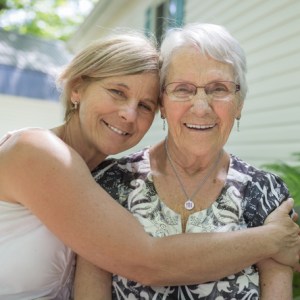
When I show them my MedicAlert ID bracelet, they always take a second look and cater more closely to my needs.
Ali, MedicAlert Member since 1999
Click Here to Renew. Need help? Call us at 1-800-432-5378 Monday – Friday 6:00 a.m. – 4:30 p.m. PT
My name is Ali and I’m 27 years old, currently living in Chicago. I have never known life without medical issues and I’ve accepted that as my norm. I was first diagnosed with anaphylactic food allergies, asthma, and eczema at the age of two. My mother, doubtful that a toddler would be able to properly advocate for herself, immediately measured my teeny wrist using a dollar bill and ordered my very first MedicAlert bracelet.
As I think of the tools that have helped me navigate my life with more ease and less fear, my MedicAlert bracelet instantly comes to mind. It’s how I advocate for myself, it’s why I became a food allergy advocate on Instagram. It’s been a staple on my left wrist for as long as I remember, and I feel bare without it.

Dining out can be one of the most challenging activities for people living with food allergies. Communicating your condition and needs can sometimes make you feel like you’re in the spotlight, when all you want to do is enjoy a meal with family or friends! The good news is, thanks to MedicAlert, grabbing a bite to eat doesn’t have to be an uncomfortable experience.
“I can’t count the number of times I’ve ordered at a restaurant and the server has brushed aside the severity of my allergies,” Ali says. “I will always be a food allergy advocate. When I show them my MedicAlert ID bracelet, they always take a second look and cater more closely to my needs. There’s an element of credibility that comes with wearing a MedicAlert bracelet.”
Learn more about this condition on the medical conditions page.
Read More >
Read about other conditions that our MedicAlert members live with.
Read More >
If you are living with anaphylaxis food allergies or a chronic condition such as asthma, a MedicAlert bracelet can have a strong impact on your sense of well-being and peace of mind. Whether you find it difficult to communicate your needs in every day situations, or if you are in an accident and unable to communicate with first responders, a MedicAlert bracelet can be your voice.
“MedicAlert has truly had the most impact on my life as a conversation starter, a bridge into a world of invisible illness,” Ali says. “What are you allergic to? What does it say? Are you diabetic? What do you have? are the usual questions when someone sees my bracelet. I can recite the exact words on my bracelet from memory, and then elaborate on what that has meant for my life and how I’ve been impacted by those small, engraved words.”
When I show them my MedicAlert ID bracelet, they always take a second look and cater more closely to my needs.
Ali, MedicAlert Member since 1999
A MedicAlert bracelet can quickly alert first responders and others to crucial details of your condition, which can save precious time where it counts.
MedicAlert can be with you every day of the year. “That simple silver chain gives me an opportunity to share my medical profile with those around me and educate them on how they can be better allies,” Ali says. “It’s the entry point into the world I typically keep private, and it reminds me how critical it is to advocate for myself and others with the same issues. Being a food allergy advocate means I can help normalize how society treats us. And MedicAlert helps me do that. As I’ve grown older, my medical issues have become more complex and the need for awareness and education is at an all-time high since these newer issues come with more complications.”
“When I consider what that simple bracelet means to me almost 25 years later,” Ali says, “I think of education and awareness. I think it helped me find my voice as a food allergy advocate. And I’m fortunate that most of my allergic reactions and flare-ups have happened in the company of family and close friends who could advocate for me.”
“While technology will continue to innovate ways to track illness and log information in emergencies, there will never be anything more accessible and direct than that little bracelet resting softly on my left wrist, its silver emblem a beacon to the lifesaving message on the other side.”
Shop Ali’s Bracelet here.
There are dozens of organizations in the U.S. and around the world that are food allergy advocates, and help those individuals living with food allergies. The Asthma and Allergy Foundation of America (AAFA), the Food Allergy & Anaphylaxis Connection Team (FAACT), and Food Allergy Research & Education (FARE) are just a few food allergy advocates in the U.S.
The month of May in the U.S. is National Asthma and Allergy Awareness Month, each year it brings these and other organizations together to raise awareness and help improve the lives of people living with asthma, allergies, and anaphylaxis food allergy.
Approximately 5.6 million children (nearly 8%) have food allergies. Around 40% of these children live with multiple food allergies. Of the 5.6 million children living with food allergies, less than half have an anaphylaxis food allergy, with the most anaphylactic events occurring among elementary-, middle school-, and high school-age students. Some of the most common food allergies in children include peanut, milk, shellfish, and tree nut. Peanuts, shellfish, and tree nuts cause the most severe reactions. This includes anaphylaxis.